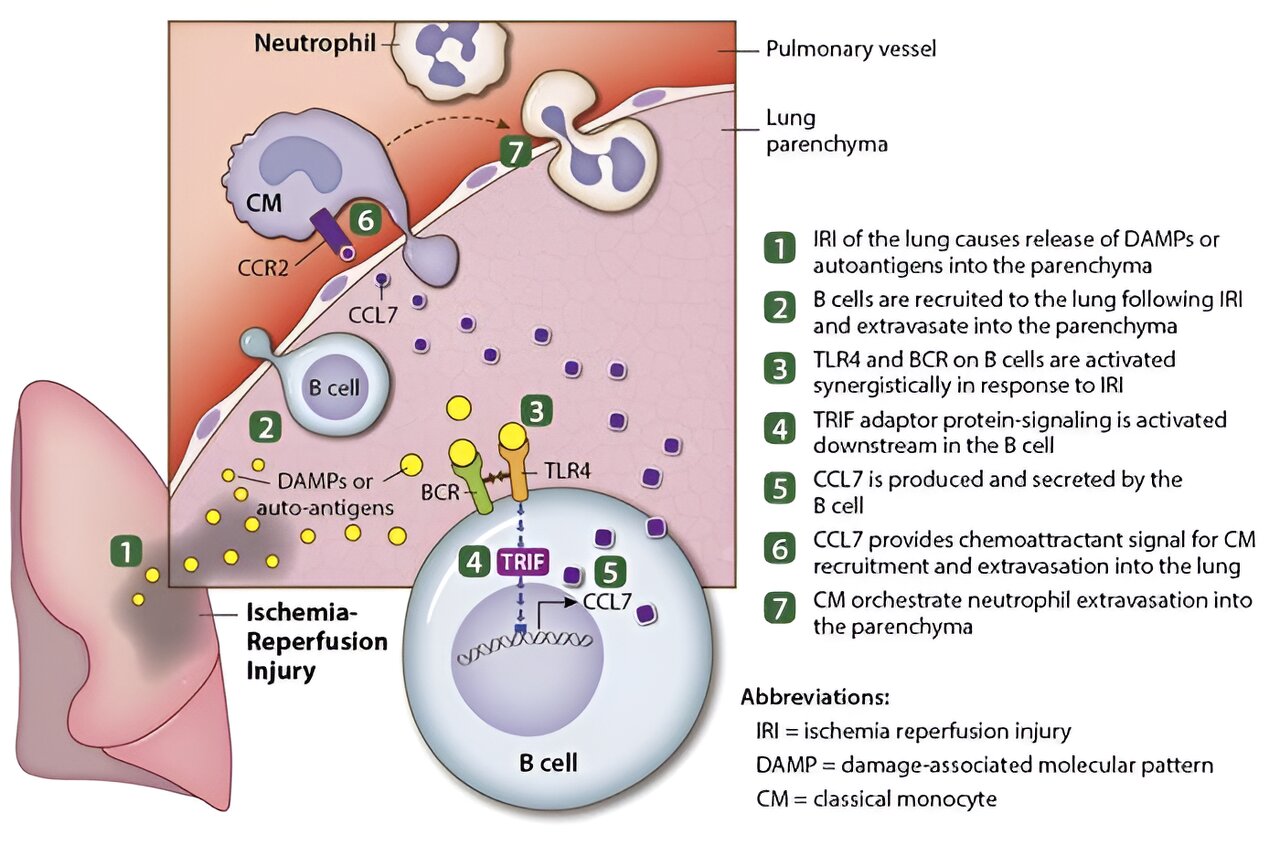B-cells infiltrating the lungs may be responsible for one of the most common complications in lung transplantation, which can lead to rejection, according to a study published in the Journal of Clinical Investigation.
Roughly 2,500 people receive lung transplants each year, according to the U.S. Department of Health and Human Services, and they are one of few treatment options available for people experiencing end-stage respiratory failure, according to the National Institutes of Health.
Ischemia/reperfusion injury—the damage caused by cell death following the restoration of blood flow to a donor lung—is one of the most common complications of lung transplantation surgery, and a fundamental problem faced in all organ transplants, said Ankit Bharat, MBBS, the Harold L. and Margaret N. Method Professor of Surgery, Director of Canning Thoracic Institute and a co-author of the study.
“When we take the organs out, they’re ischemic: there’s basically no blood flow,” said Bharat, who is also a member of the Robert H. Lurie Comprehensive Cancer Center of Northwestern University.
“When they get re-attached and the blood flow is started back up, that’s the reperfusion part. It happens in every organ transplant and causes a lot of issues, from very mild types of injury to the lungs, to complete failure of the lung—and we don’t quite understand why.”
In the study, investigators used intravital imaging to track the activity of B-cells—white blood cells known to regulate immune responses—following ischemia/reperfusion injury in mice.
They found that B-cells that infiltrate the lung worsen lung function by producing more white blood cells (monocytes) and promoting the leakage of neutrophils—another type of white blood cell that serves as the body’s first line of defense—into surrounding tissues, according to the study. Investigators also confirmed their findings in human lungs following transplantation.
The study establishes the critical role of B-cells in ischemia/reperfusion injury and lung transplant rejection, Bharat said.
“What we found here is getting deep down into these intermediary processes happening between transplantation and injury or potential primary graft dysfunction,” Bharat said.
“These findings basically highlight a crucial role of the B-cells. Now, what we want to do is prevent primary graft dysfunction by targeting these cells.”
FDA-approved drugs already exist to target B-cells, Bharat said, but more research is needed to understand if these drugs could help lung transplant patients.
“The B-cells, we think, are not only harmful in the ischemia/reperfusion injury, as this paper shows, but also we think that these B-cells potentially get engrafted within the newly transplanted lung and drive the long-term failure of the lungs,” Bharat said.
“We now need to have a broader research focus into understanding how, after the immediate transplant, the B-cells get into the lungs and what roles they play and if we can modulate the B-cell activation to improve the long-term survival of the lung recipients, both right after transplant, but also mitigating chronic rejection, which is increasingly being recognized by our work and others as being driven by B-cells.”
More information:
Khashayar Farahnak et al, B cells mediate lung ischemia/reperfusion injury by recruiting classical monocytes via synergistic B cell receptor/TLR4 signaling, Journal of Clinical Investigation (2024). DOI: 10.1172/JCI170118
Citation:
Researchers suggest B-cells may play role in lung transplant rejection (2024, May 7)
retrieved 7 May 2024
from https://medicalxpress.com/news/2024-05-cells-play-role-lung-transplant.html
This document is subject to copyright. Apart from any fair dealing for the purpose of private study or research, no
part may be reproduced without the written permission. The content is provided for information purposes only.
